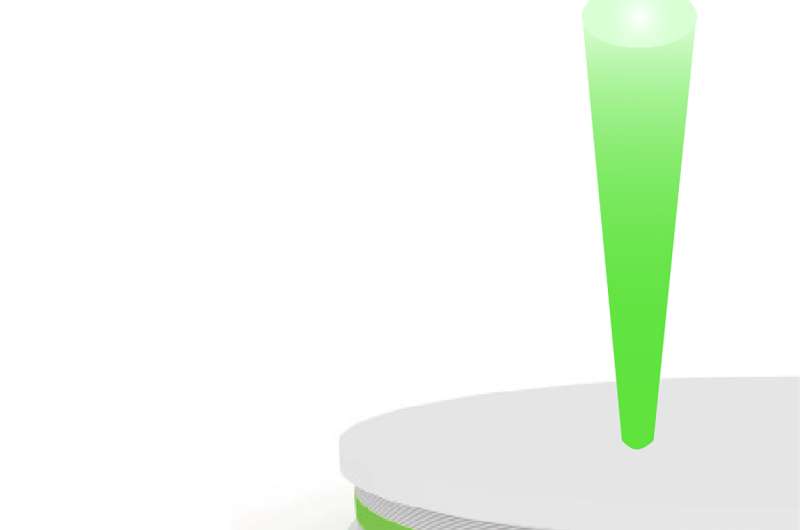August 22, 2016 report
Jellyfish proteins used to create polariton laser

(Phys.org)—A combined team of researchers from Scotland and Germany has developed a way to create a polariton laser by using jellyfish proteins cultivated in E. coli cells. In their paper published in the journal Science Advances, the team describes their technique and possible uses for the result.
As most people know, at a basic level, conventional lasers work by bouncing light around inside of a cavity and then emitting identical photons as a beam. There is another type of laser that is less well known, the polariton laser—it works by tossing photons back and forth between excited molecules. But the reason it has not made its way into commercial use is because it must be cooled to an extremely low temperature to work properly. In this new approach, the researchers report the development of such a laser that works at room temperatures.
To make the new laser, the researchers grew enhanced green fluorescent protein from jellyfish in E. coli cells because prior research suggested they were capable of producing polaritons (quasiparticles that are able to carry excitations with them). The protein was fashioned into a very thin (500 nanometer) film that was set between two mirrors. To create a laser beam, all the researchers had to do was shine a blue light into the device, which excited the proteins to the point of producing polaritons—soon thereafter, they spontaneously synchronized, producing a laser beam that was emitted out of the device.
The researchers note that others have tried to create such lasers with limited success due to the excited particles colliding with one another—severe cooling was the only way to tame them. But the jellyfish proteins came with a built-in solution—each was barrel-shaped with the fluorescent molecules shielded inside, protecting the emitted particles from interfering with one another.
The team suggests that because the laser operates at room temperature, one of its ideal applications might be as a laser tag for cancer—one that is able to note the differences in wavelengths of light bounced from cells allowing for easily identifying those that are cancerous. They plan to search for other biological materials that might serve a similar purpose but that do so by emitting colors other than green.
Journal information: Science Advances
© 2016 Phys.org



















